In India, parliamentary privileges and fundamental rights are two distinct but interconnected concepts that are crucial for the functioning of the democratic system. Let’s delve into each of these concepts:
Before starting, it is for information to all that the article that we are going to discuss below has already been discussed in our youtube channel: Previous Notes.
You can watch this vedio by clicking the below link:
Intorduction:
- Parliamentary privileges are defined in Article 105 & Article 194 of the Indian Constitution.
- Under these privileges, the person is exempted from any civil or criminal liability for any statement made or act done in the course of their duties.
- Exceptional Rights or advantages granted to member of parliament and member of legislative assembly.
Why It’s Required?
- It Secure the independence and effectiveness of the actions taken by MPs.
- These help in maintaining dignity, authority and honour of the member of parliament.
- Also help in securing the member of the houses from any obstruction.
Article 105 in The Constitution Of India (Clause (1) & (2)) (For member of Parliament)
- Powers, privileges, etc of the Houses of Parliament and of the members and committees thereof
(1) Subject to the provisions of this constitution and the rules and standing orders regulating the procedure of Parliament, there shall be freedom of speech in Parliament.
(2) No member of Parliament shall be liable to any proceedings in any court in respect of anything said or any vote given by him in Parliament or any committee thereof, and no person shall be so liable in respect of the publication by or under the authority of either House of Parliament of any report, paper, votes or proceedings.
Article 194: (for MLAs)
Powers, privileges, etc., of the Houses of Legislatures and of the members and committees thereof – Constitution Of India
(1) Subject to the provisions of this Constitution and to the rules and standing orders regulating the procedure of the Legislature, there shall be freedom of speech in the Legislature of every State.
(2) No member of the Legislature of a State shall be liable to any proceedings in any court in respect of anything said or any vote given by him in the Legislature or any committee thereof, and no person shall be so liable in respect of the publication by or under the authority of a House of such a Legislature of any report, paper, votes or proceedings.
(3) In other respects, the powers, privileges and immunities of a House of the Legislature of a State, and of the members and the committees of a House of such Legislature, shall be such as may from time to time be defined by the Legislature by law, and, until so defined, 1 [shall be those of that House and of its members and committees immediately before the coming into force of section 26 of the Constitution (Forty-fourth Amendment) Act, 1978].
Types of Parliamentary Privileges:
To Individual:
- Freedom of speech in parliament
- Freedom from arrest (in any civil case before 40 days before and after the adjournment of the house, also when the house is in session)
- Freedom from appearing as a witness
Privileges enjoyed by the members collectively as part of parliament
- Right to prohibit the publication of proceedings
- Right to exclude strangers
- The right to punish members and outsiders for breach of its privileges
- The right to regulate the internal affairs of the house
How Freedom of Speech is different from Parliamentary Privileges:
Article 19 (2):
provides the restriction imposed on freedom of Speech given to citizen of India:
- sovereignty and integrity of India, the security of the State, friendly relations with foreign States, public order, decency or morality or in relation to contempt of court, defamation or incitement to an offence.
Article 105(1)
Restriction given to MPs in context of Freedom of Speech:
- (1) Subject to the provisions of this constitution and the rules and standing orders regulating the procedure of Parliament, there shall be freedom of speech in Parliament.
Thus, for Citizen of India there are many restriction as provided under Article 19(2) of Indian Constitution but for MPs restriction are only provided under Article 105(2) of Indian Constitution. Thus, it has a few restriction as compared to the restriction given to citizen of India under Article 19(2).
Case Laws:
Dr. Jatish Chandra Ghosh vs Hari Sadhan Mukherjee And Others on 16 January, 1961
Fact of the Case: A MLA wanted to ask question in the legislative assembly of West Bengal, but speaker didn’t allow him. He published the questions in a news paper. An SDM filed an defamation case against the person who published the question in a newspaper as he was supposed to answer those question. He filed the case with the argument that this is violation of parliamentary privileges as speaker denied him to do so.
Court: The publication of a disallowed question by a member of the Assembly does not come within the powers, privileges and immunities enjoyed by a member of the House of Commons
P.V. NARSIMHA RAO v. STATE (1998)
Article 105(2) the members of the parliament will get immunity and thus, the activity of taking bribe by the MP’s will get immunity despite anything said by them or any vote given by them in the Parliament.
Gunupati Keshavram Reddy v. Nafisul Hasan and the State of U.P AIR 1952
Can Fundamental Rights be violated in the name of Parliamentary privileges, this question arises in this case.
In this case, speaker held one MLA and sentenced him for jail for a few days but he filed a writ petition stating that he was not brought within 24 hours of the arrest and thus voilated his fundamental right.
Court: held that Parliamentary Privileges are not above fundamental rights. In this case, fundamental rights of the person is voilated.
MSM Sharma v. Sri Krishna Sinha AIR 1959 SC395 ( Editor & Published)
An editor of the newspaper published a report which were not supposed to be published in the public domain with the argument that he has freedom of speech guaranteed under Article 19 of the Indian Constitution. Court held that his right given as freedom of speech is not above the freedom of speech given to the parliamentarian under Parliamentary privileges and thus held liable for this act.
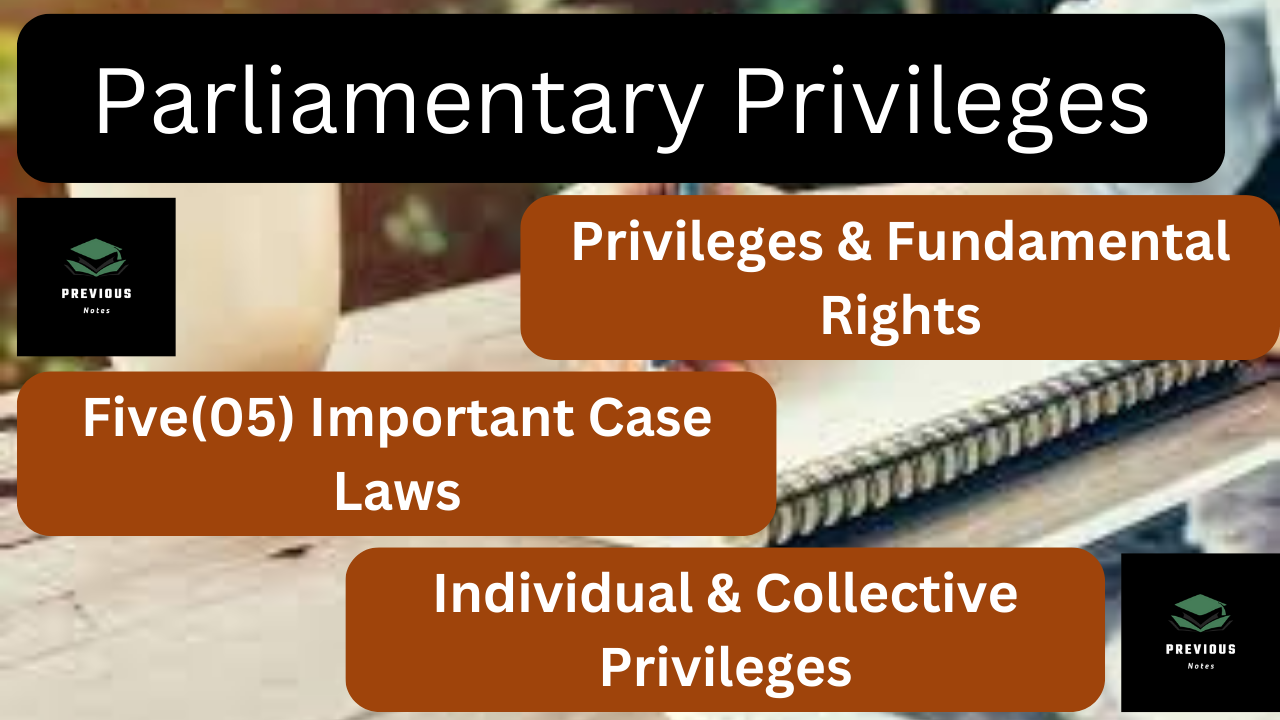
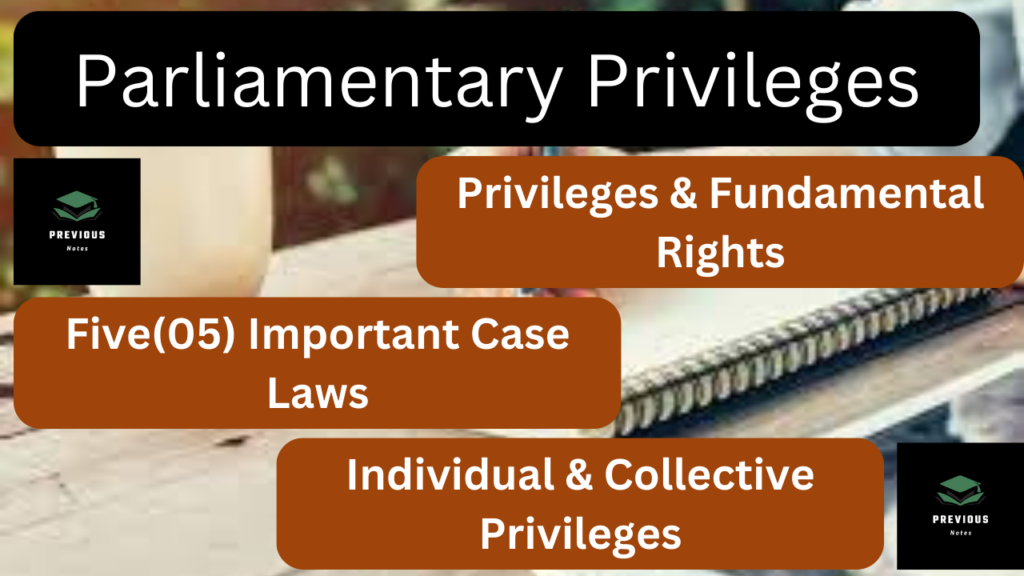












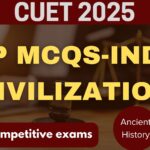
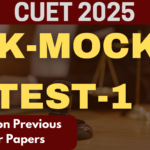
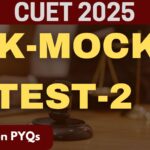
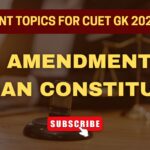

Leave a Reply